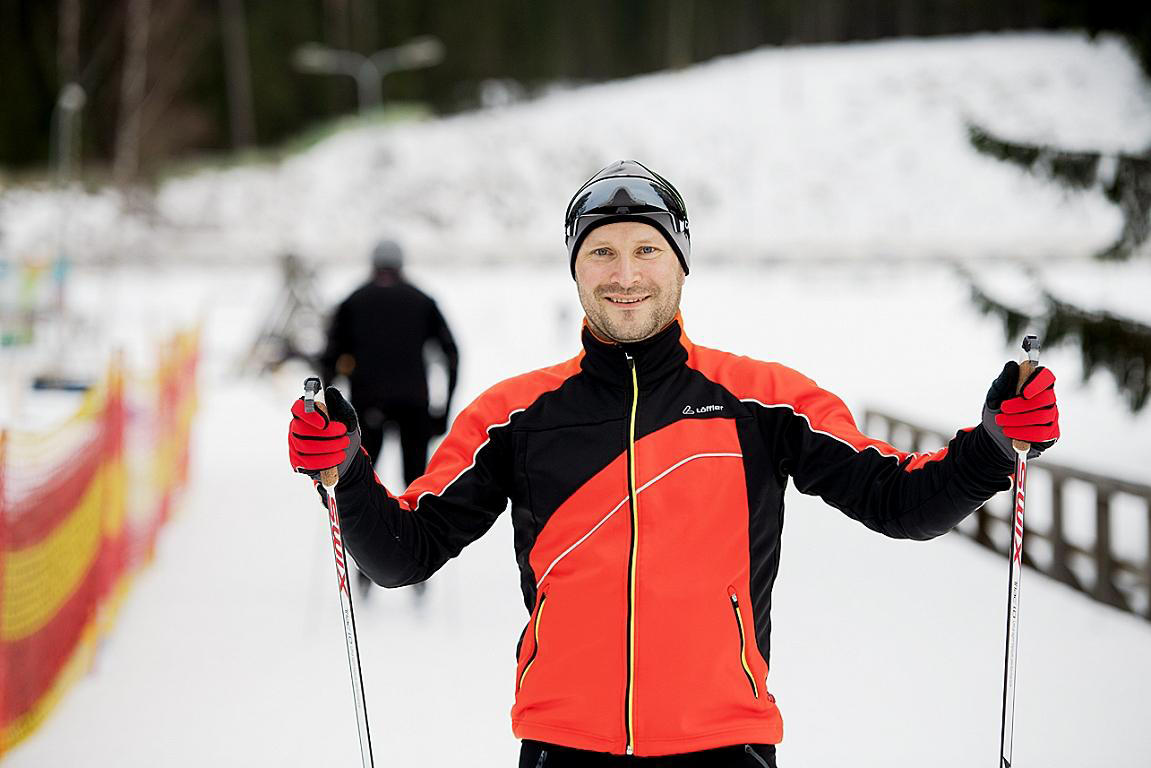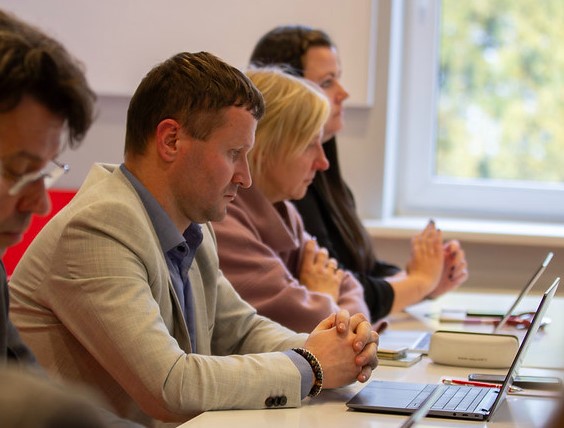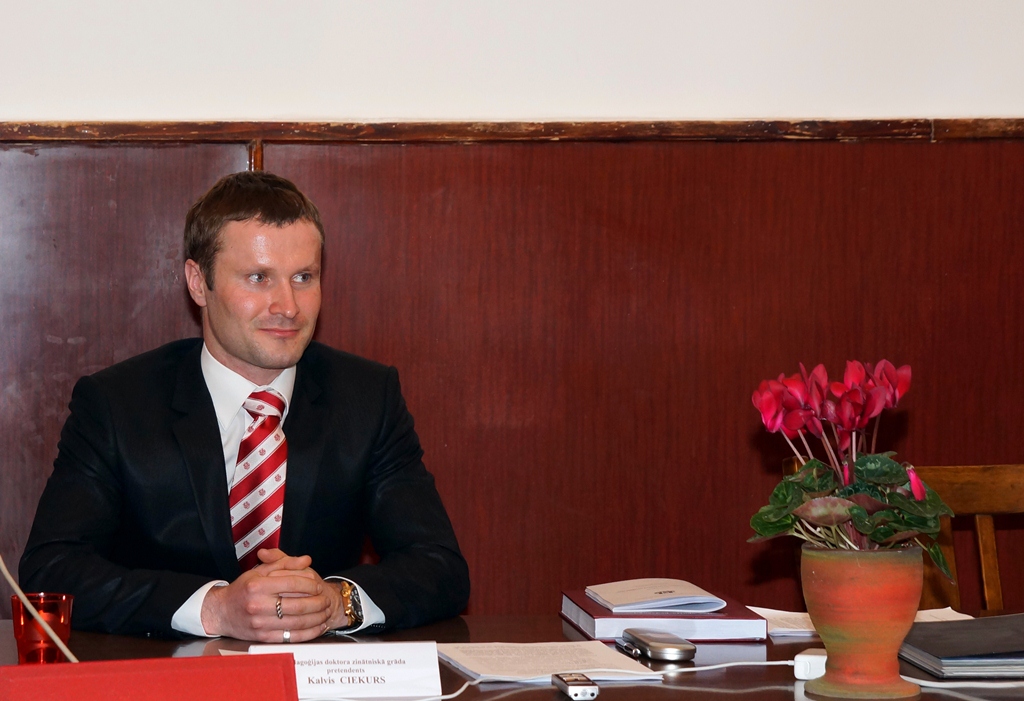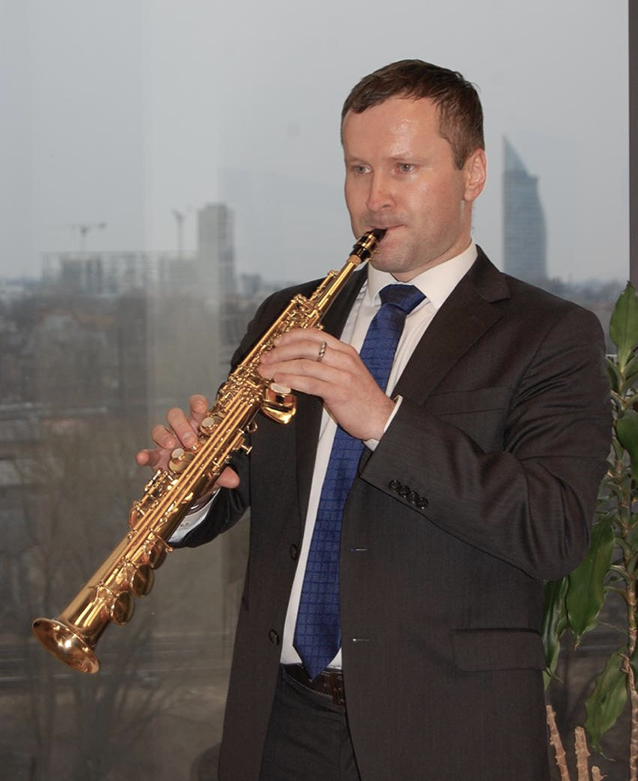Winds of change in sports science and education. Interview with Kalvis Ciekurs, Acting Director of RSU LASE
The year 2024 has been a time of significant change for the Rīga Stradiņš University Latvian Academy of Sport Education (RSU LASE), as the academy underwent restructuring as part of the consolidation with RSU. This has brought new challenges and opportunities for students, teaching staff, researchers, and employees. The merger has not only impacted the organisational structure of RSU LASE but also affected study processes, administrative procedures, and research opportunities.
How will the consolidation affect the future development of sports education? Assoc. Prof. Dr. Kalvis Ciekurs (pictured), former Rector of LASE and current Acting Director of RSU LASE addresses this question in an interview.

The consolidation: a challenge and an opportunity
A little over a year has passed since you became the fifteenth, and last, rector of the Latvian Academy of Sport Education. Following the consolidation, you assumed the position of acting director of RSU LASE. How would you assess this process of change, and how do you feel about it?
Last year was professionally intense and challenging. I have worked at the Latvian Academy of Sport Education (LASE) since 2006, but 22 January 2024 will stand out as the day the LASE Constituent Assembly elected me, then Head of the Skiing Department, as Rector. This marked the start of a rapid transformation, leaving little time to adapt. In close cooperation with Rīga Stradiņš University, LASE embarked on an unexpectedly swift merger process, quickly shifting into what could be called “turbo mode.”

Kalvis Ciekurs as the Head of the Skiing Department
Six months later, on 1 July, LASE officially joined RSU. This change brought not only legal and administrative adjustments but also required a new approach and way of thinking for me, my colleagues, and the students. We made important decisions quickly, ensuring that the study process and research activities at RSU LASE continued without disruption. The pace of change was rapid for all of us, and had a more gradual transition been possible, many situations could have been evaluated more carefully.
It is now crucial to use the current situation as an opportunity to improve sports education and science, ensuring quality and sustainable development by fostering new partnerships and ensuring that the knowledge and traditions of LASE continue to evolve within the academic environment of RSU.

Together with RSU Rector Prof. Aigars Pētersons (on the left)
RSU LASE moves to a new departmental model, strengthening sports science and practice
This year, RSU LASE will undergo a significant structural reorganisation, with the current seven departments merging into three. This will enable better resource optimisation, strengthen research capacity, and foster a more focused approach to studies and research.
The new structure will consist of a theoretical sport department focused on the foundations of sport science, sport management processes, and advanced knowledge in physiology, anatomy, and medicine. The other two practical sport departments will train sport coaches and teachers in sport and national defence, with an emphasis on developing professional sport and physical preparedness in close connection with healthcare.

Ciekurs at an RSU Senate meeting
This structural focus will provide new opportunities for students to gain a deeper understanding of, and ensure a closer connection between, sport science and practical knowledge in both promoting sports and a healthy lifestyle.
Developing study processes and programmes
How will this change affect the development of study processes and programmes?
Alongside the departmental reorganisation, study programmes are being improved. Our priority is to ensure they meet the needs of students and employers. Together with colleagues, we are revising and adapting them to new conditions to enhance qualifications and competitiveness in the labour market.
It is important for us not only to increase student interest in the programmes but also to make them more attractive and widely applicable, not just in Latvia, but also in the Baltic States and internationally. After careful analysis and discussions with students, lecturers, and employers, we have concluded that several programmes require changes in both course content and structure.
In January, RSU and RSU LASE hosted a group of international experts who assessed the Education and Pedagogy study field.
Studiju virzienā Izglītība un pedagoģija īsteno studiju programmas: īsā cikla profesionālo augstākās izglītības studiju programmu Sporta un izglītības speciālists, pirmā cikla (bakalaura) profesionālo augstākās izglītības studiju programmu Veselība, fiziskā aktivitāte un drošība. Studiju virziena turpmākai attīstībai skaidri redzami daudzi uzdevumi ikdienas darba līmenī un konceptuāli kopdarbi.
Study programmes implemented as part of the Education and Pedagogy study field: the Sports and Education Specialist short-cycle professional higher education study programme, the Health, Physical Activity and Security professional bachelor’s (first-cycle) study programme. The further development of the study field presents both daily operational challenges and broader conceptual collaboration opportunities.

Ciekurs at the education fair Skola 2024
What changes can we expect in the Sports Science bachelor's programme?
One of the main areas of focus is the link between sports science and healthcare. New, advanced courses will be introduced into the study programmes, such as visits to the Anatomical Theatre and simulations, where students can learn about the functioning of the human body in a more realistic setting. This is particularly important for sports coaches, health specialists, and sports researchers, as it helps them better understand how to train and rehabilitate athletes, considering their individual physiological characteristics.
The new programme will focus on providing in-depth knowledge of anatomy, physiology, and sports medicine. We can already observe that Level C coaches have a solid understanding of these areas. Therefore, it is important to structure the course content so that each level adds value and provides a clear path for career development.
We are working to reduce the fragmentation of study courses. For example, sports games courses (volleyball, football, basketball, floorball, handball) could be combined into one broader study course. This does not mean that any sport will be removed – students will still study each of them.
Other courses are undergoing similar changes. Instead of students taking several small courses worth 2 credits each, we are creating larger, more structured courses with broader content. This will help to establish a unified, logically organised curriculum that is clearer for both students and teachers.
We are currently undergoing a transition that will continue until March 2026. While change always brings challenges, it brings opportunities too.
What advice would you give to young people planning to start their studies in sports programmes this year?
It is important for them to take good care of their physical fitness. To apply for the Sports Science programme, they will need to pass physical fitness tests. We want students to be in good physical condition and motivated. It's not enough to start training a few weeks before the entrance tests – regular physical activity should be part of their daily routine.
The new programme will also place special emphasis on the training of sports teachers, coaches, and sports managers. Unfortunately, the recreation qualification will no longer be offered due to a lack of interest.

Ciekurs defending his doctoral thesis in 2013
How will the application process and entrance d be organised this summer?
Nothing has changed. The application process will be organised electronically via the RSU student admissions platform. The physical fitness tests will be held at the Academy, located at 333 Brīvības gatve, Riga. More detailed information will follow, but our aim is to make the admission process as convenient as possible for students.
What is the current situation with the Physiotherapy programme?
Current students will continue their studies without interruption, while the LASE Bachelor of Physiotherapy programme will gradually be integrated into the RSU structure. As a result, the lecturers have become an integral part of the RSU academic community.
I urge students, teaching staff and employees to look at this process positively – change is an opportunity to grow, improve and adapt to the new requirements. Our aim is to ensure high-quality education and train competent specialists in the field of sports.
I am confident that the consolidation with RSU will ensure the strong and sustainable development of LASE. Our scientific and study programmes will become more interdisciplinary, and we will further strengthen our role in the fields of sports science and healthcare, both in Latvia and internationally.

Ciekurs plays the saxophone in his free time
Project nr. KPVIS 5.2.1.1.i.0/2/24/I/CFLA/005 RSU internal and RSU with LASE external consolidation.

Related news
 Consolidation in focus: Insights from the RSU Infrastructure Department For Students, Consolidation, For RSU Employees, Internal consolidation, RSU LSPA, Research
Consolidation in focus: Insights from the RSU Infrastructure Department For Students, Consolidation, For RSU Employees, Internal consolidation, RSU LSPA, Research


